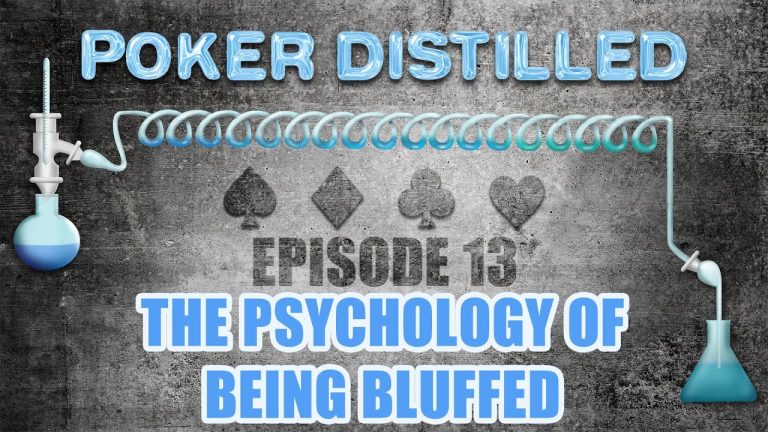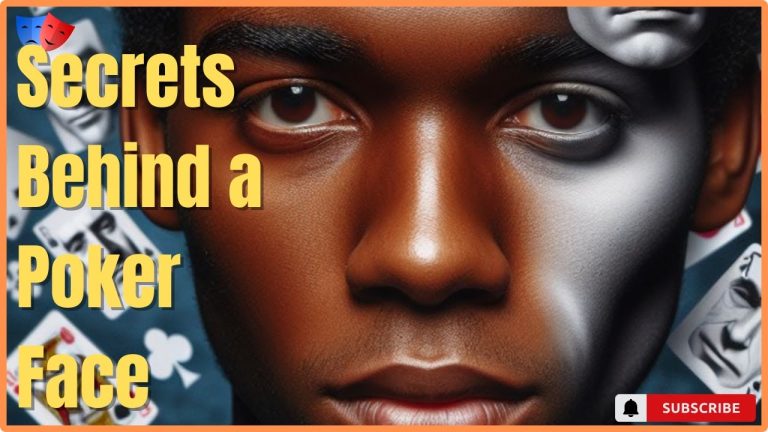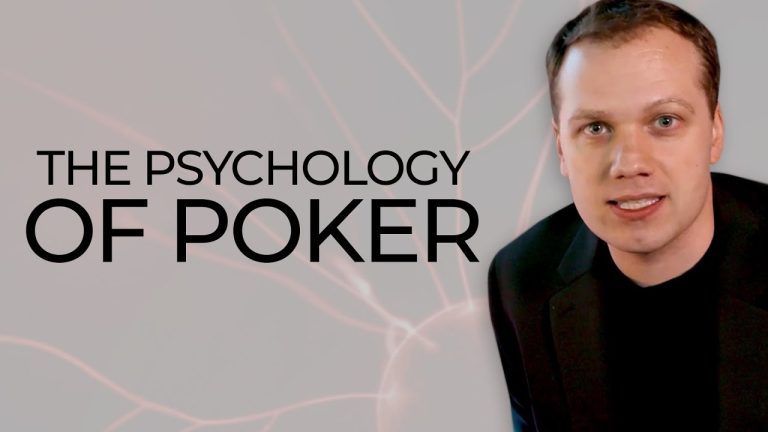Are you ready to dive into the fascinating world of poker and uncover the secrets behind a successful bluff? The psychology of bluffing in poker is a captivating subject that delves into the intricate mind games and strategic maneuvers players use to outwit their opponents. In this article, we will explore the psychology behind bluffing, revealing the psychological tactics employed by skilled poker players and how you can use them to your advantage. Get ready to sharpen your poker skills and gain a deeper understanding of the art of bluffing.
What does bluffing involve in terms of psychology?
Bluffing in psychological terms is a complex interplay of emotions and strategic thinking. The psychology of bluffing revolves around the expectations of the emotional aftermath on both the bluffer and the opponent. It is this anticipation of how the bluff will affect the opponent’s perception and subsequent actions that drives the decision to bluff. However, successful bluffing also requires a certain level of risk tolerance. Those who are risk-averse may find it difficult to engage in games of chance and strategic interdependence where bluffing is a key element.
In the realm of bluffing, risk tolerance becomes a crucial factor in determining the success of a bluff. A person’s willingness to take risks can heavily influence their decision to attempt a bluff and the opponent’s decision to challenge it. Bluffing requires a certain level of calculated risk-taking, as it involves deceiving the opponent into making a detrimental move. Therefore, individuals who are more inclined towards risk-averse behavior may find it more prudent to avoid games that heavily rely on bluffing, such as poker. The psychology of bluffing thus highlights the intricate balance between emotions, strategic thinking, and risk tolerance in determining the outcome of bluffing situations.
What is the effectiveness of bluffing in poker?
Bluffing is a crucial strategy in poker that can greatly impact the outcome of the game. By bluffing, players have the ability to deceive their opponents, making them believe they have a stronger hand than they actually do. This creates uncertainty and forces opponents to make difficult decisions, giving the bluffer an advantage.
The effectiveness of bluffing in poker lies in its ability to exploit the psychology of the game. Skilled players can manipulate their opponents’ emotions, making them doubt their own hand and causing them to fold even when they have a strong hand. Bluffing adds excitement and unpredictability to the game, making it more engaging and strategic.
However, bluffing should be used sparingly and strategically. Overuse of this tactic can lead to predictability and can be easily exploited by observant opponents. It is essential to analyze the situation, read your opponents, and carefully choose the right moments to bluff. When executed skillfully, bluffing can be a powerful tool in poker, increasing your chances of success and maximizing your profits.
How can one effectively bluff in a game of poker?
Bluffing successfully in poker requires strategic moves and calculated risks. One effective technique is to float the flop, which involves calling a bet without a strong hand, and then capitalizing on opponents’ hesitation by betting on the turn. This approach can be particularly effective in games with weaker players, as they are less likely to continue betting without a strong hand.
By floating the flop and betting the turn, you create a sense of uncertainty and exploit the hesitation of your opponents. This strategy works well in lower stakes games where inexperienced players may struggle to make confident decisions without a strong hand. By taking advantage of their uncertainty, you increase your chances of successfully bluffing and winning the pot.
Remember, successful bluffing in poker is all about reading your opponents and making calculated moves. Floating the flop and betting the turn is just one effective technique among many, but it can be a powerful tool in your bluffing arsenal. Practice and experience will help you refine your bluffing skills and ultimately increase your chances of success at the poker table.
Master the Mind Games: Decoding the Secrets of Poker Bluffing
Paragraph 1:
Discover the art of poker bluffing and unlock the secrets to winning big at the table. Bluffing is a skill that separates the amateurs from the pros, and with our expert tips and tricks, you’ll be able to master the mind games that can lead you to victory. Whether you’re a seasoned player looking to polish your skills or a beginner ready to dive into the exciting world of poker, our comprehensive guide will provide you with the knowledge and strategies needed to bluff your way to success.
Paragraph 2:
Decoding the secrets of poker bluffing is all about understanding human psychology. By observing your opponents’ behavior and body language, you can gain valuable insights into their card strength and intentions. Our guide will teach you how to read your opponents like a book, spotting their tells and deciphering their bluffs. With this newfound ability, you’ll be able to make informed decisions and strategically use bluffing to your advantage, leaving your opponents questioning their every move.
Paragraph 3:
Take your poker game to the next level and become a master of poker bluffing today. Our guide provides step-by-step instructions on how to execute successful bluffs, from choosing the right moment to bluff to maintaining a convincing poker face. We’ll also share expert strategies on how to spot when your opponents are bluffing, allowing you to turn the tables and capitalize on their weakness. With our comprehensive guide, you’ll gain the confidence and skills needed to dominate the poker table and leave your opponents guessing.
Unmasking the Art of Deception: The Psychology Behind Winning at Poker
Unmasking the Art of Deception: The Psychology Behind Winning at Poker
In the high-stakes world of poker, the true art lies not in the cards dealt but in the minds of the players. Poker is a game of skill, strategy, and psychological warfare. To win, one must master the art of deception, understanding that the greatest weapon at the table is not the hand you hold, but the ability to manipulate and deceive your opponents. It is the subtle nuances of body language, the calculated timing of a bet, and the skillful use of bluffing that can make or break a player’s success. The psychology behind winning at poker is a delicate dance of reading your opponents, concealing your true intentions, and exploiting their weaknesses. The poker table becomes a stage where players don masks, each with their own unique personas and strategies. It is here that the true players separate themselves from the amateurs, where the art of deception is unmasked, and the champions are crowned.
In the high-stakes world of poker, understanding the psychology of bluffing is an essential skill for success. By carefully observing opponents’ behaviors, managing emotions, and utilizing strategic deception, skilled players can manipulate the game to their advantage. Bluffing is not just about luck; it is a calculated and intricate dance of perception and control. Ultimately, mastering the art of bluffing requires a deep understanding of human psychology and the ability to exploit it. So, the next time you find yourself at the poker table, remember that the cards in your hand are just a small part of the game – the real challenge lies in deciphering the psychology of your opponents and bluffing your way to victory.



